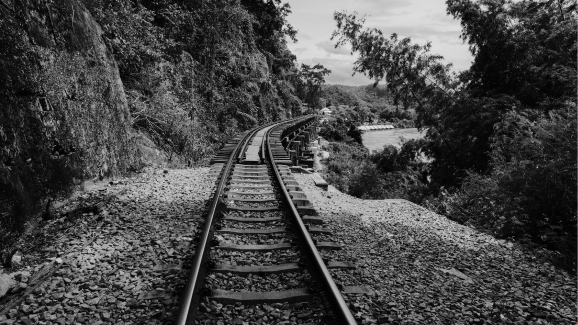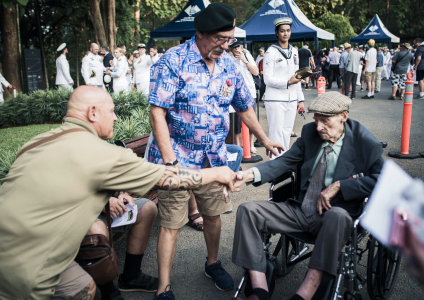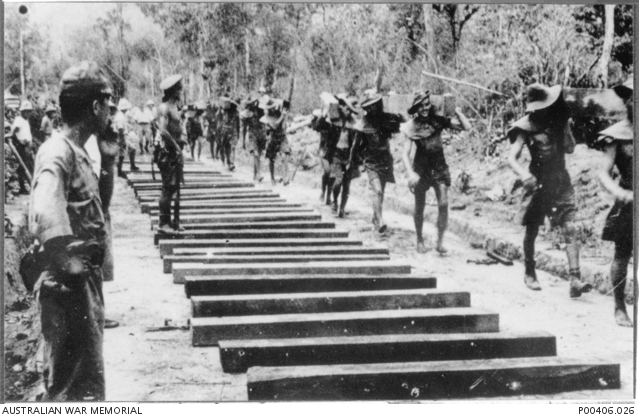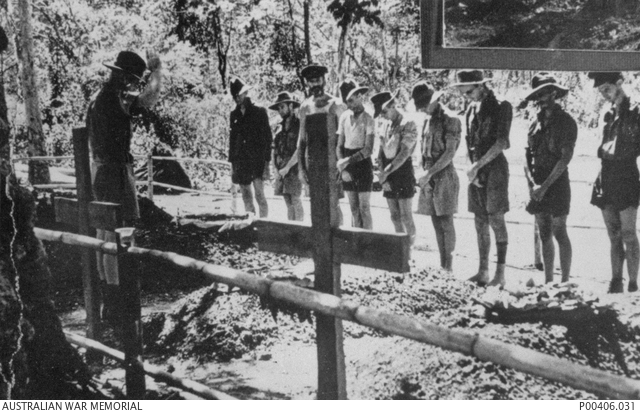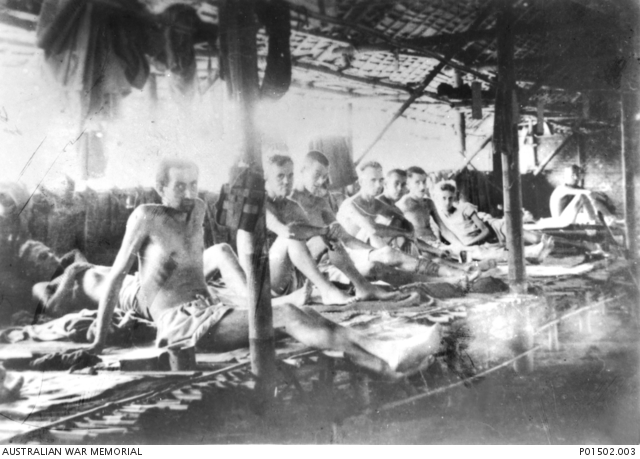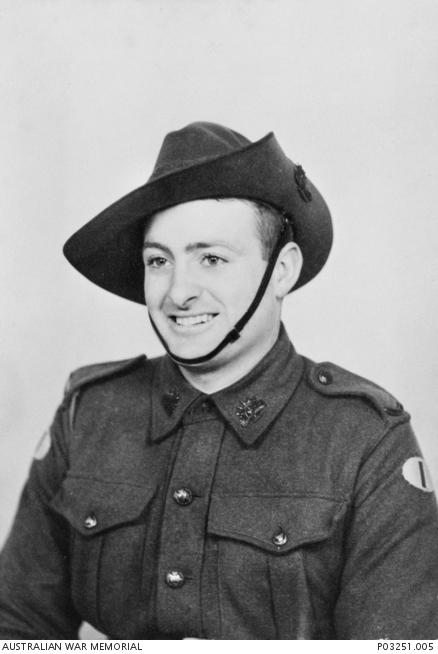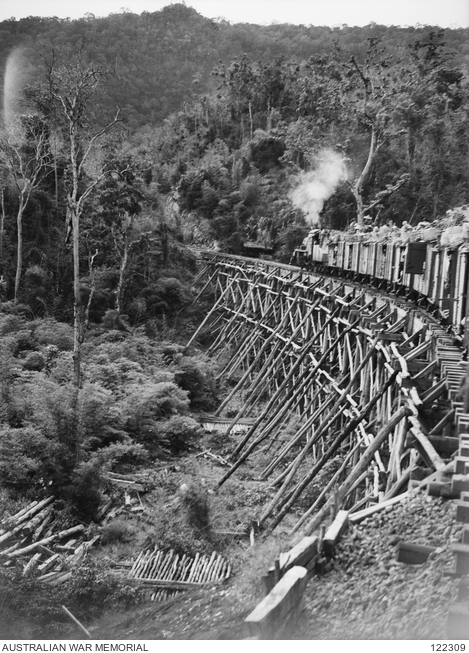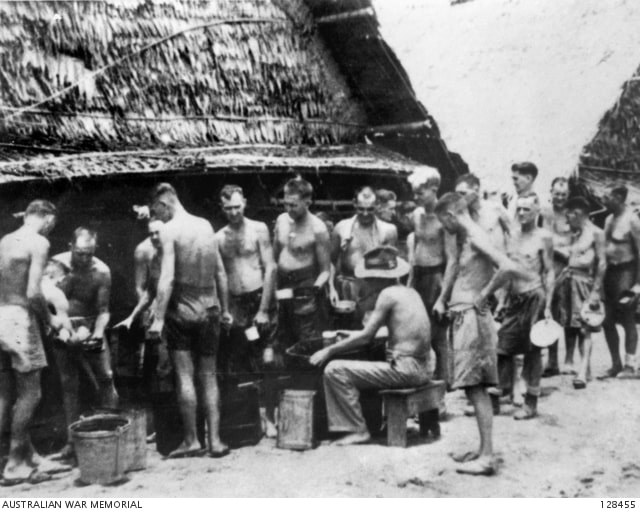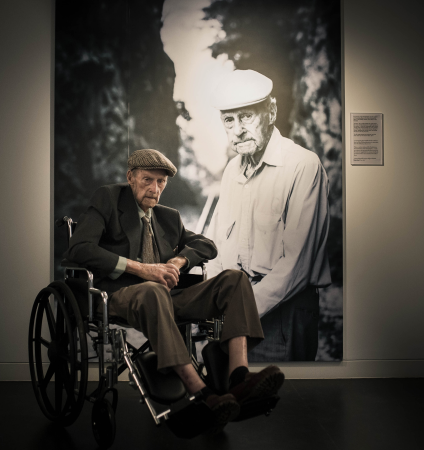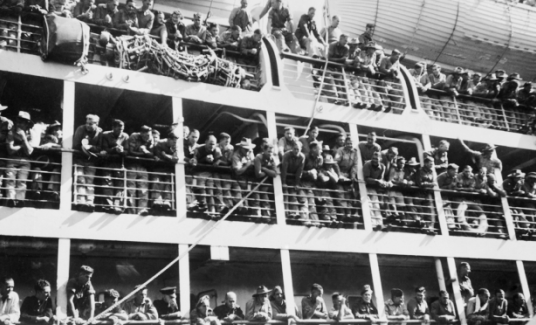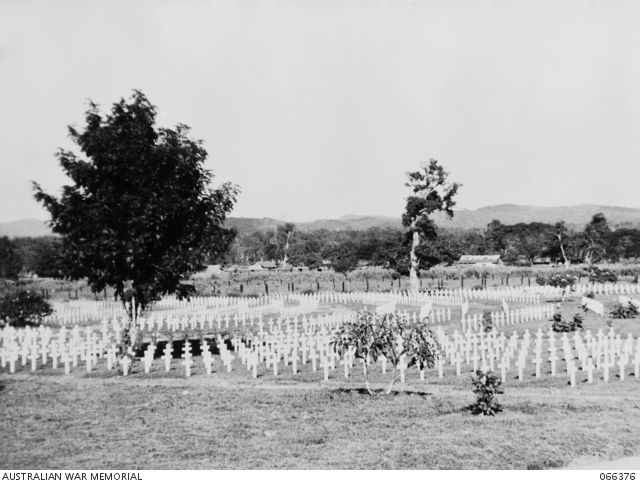The Human Cost
Hellfire Pass is a place where many people suffered greatly during World War II. In the construction of the entire railway, over 60,000 Allied prisoners of war — including Australians, Britons, Dutch, and Americans — and approximately 180,000 to 250,000 Asian labourers from countries such as Thailand, Malaysia, Burma, and the Netherlands East Indies (present day Indonesia), were forced to work under awful conditions.
They worked long hours, with little rest or nourishment and few tools to aid them. They were always under the threat of harsh and erratic punishment in the effort to build the Burma-Thailand Railway.
The scale of suffering at Hellfire Pass is hard to imagine. Workers laboured day and night, cutting through solid rock and thick jungle, often with just basic tools or even their bare hands.
Many died from diseases like cholera and malaria. Others died from hunger or from injuries resulting from the brutal treatment they received. Some survivors suggested that one life was lost for every sleeper laid.
The stories of these men, those who died and those who survived, are shared at the Hellfire Pass Interpretive Centre, to honour their memory and spirit in the face of terrible hardship.
" Age shall not weary them, nor the years condemn; and a solemn vow that this should never happen again "
David Wright, President (2003-2004), Australian-Thai Chamber of Commerce
Photo Name


Gallery



Photo Name


Photo Name
- Horace
- Wilfred
- Jesse
- William
- Herbert
- Lawrence
- James
- George
- Leonard
- Norman
- Robert
- Lenard
- Alfred
- Berend
- Jan
- Johannes
- Harm
- Louis
- Bernard
- August
- Rudolf
- Franklin
- Arthur
- Eric
- Ronald
- Harold
- Alexander
- Edward
- Leon
- Harry
- Charles
- Frank
- Albert
- Rupert
- Leslie
- Thomas
- Walker
- Friend
- Vernon
- Martinus
- Christoffel
- Johan
- Eduard
- Jacobus
- Marinus
- Frederick
- Cyril
- Bert
- Kenneth
- Francis
- Allan
- Henry
- Philip
- Edmund
- Stanley
- Wallace
- David
- Percy
- Jack
- Terry
- Peter
- Antonius
- Sjoerd
- Hendrik
- Cornelis
- Adrianus
- Gerrit
- Sidney
- Lionel
- Maurice
- Basil
- Edgar
- Ernest
- Douglas
- Czeslaus
- Martijn
- Albertus
- Herman
- Napoleon
- Maxwell
- Horace
- Wilfred
- Jesse
- William
- Herbert
- Lawrence
- James
- George
- Leonard
- Norman
- Robert
- Lenard
- Alfred
- Berend
- Jan
- Johannes
- Harm
- Louis
- Bernard
- August
- Rudolf
- Franklin
- Arthur
- Eric
- Ronald
- Harold
- Alexander
- Edward
- Leon
- Harry
- Charles
- Frank
- Albert
- Rupert
- Leslie
- Thomas
- Walker
- Friend
- Vernon
- Martinus
- Christoffel
- Johan
- Eduard
- Jacobus
- Marinus
- Frederick
- Cyril
- Bert
- Kenneth
- Francis
- Allan
- Henry
- Philip
- Edmund
- Stanley
- Wallace
- David
- Percy
- Jack
- Terry
- Peter
- Antonius
- Sjoerd
- Hendrik
- Cornelis
- Adrianus
- Gerrit
- Sidney
- Lionel
- Maurice
- Basil
- Edgar
- Ernest
- Douglas
- Czeslaus
- Martijn
- Albertus
- Herman
- Napoleon
- Maxwell
AFTERMATH
After the war
At the end of the war, very few prisoners were still working on the railway, most having been returned to Singapore and many shipped to other parts of the Japanese empire.
Those who returned home after the war faced the first stage of a long and difficult recovery.
Many former prisoners, both Allied POWs and Asian labourers, suffered lasting physical and mental damage. Injury, malnutrition, and disease from their time in captivity caused long-term health issues, and many needed substantial medical care to recover.
As with many other tragic military events, many survivors were not able to speak of their experiences or forgive those who inflicted suffering on them or the countries they served. The impact of such traumatic events made it challenging to return to normal life. Many struggled to talk about their experiences with their families and communities. At the time, in an apparent attempt to shield the public from the POW experience, military and government officials appeared to have requested those who returned not to share their stories.
Some survivors worked to promote peace and understanding. They joined educational efforts to make sure the horrors they faced on the Burma-Thailand Railway are not forgotten. Their strength continues to inspire and inform memorials and education, like those at the Hellfire Pass Interpretive Centre.

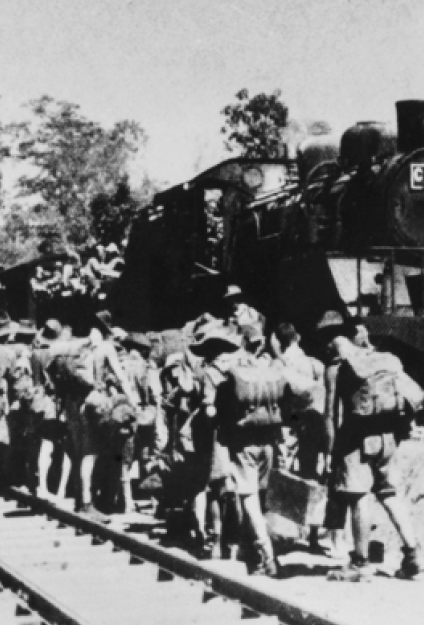
Their stories helped people understand the war. In Australia, for example, the experiences of returning POWs changed public attitudes and made people appreciate the peace they had.
Many survivors worked to promote peace and understanding. They joined educational efforts to make sure the horrors they faced on the Burma Railway are never forgotten or repeated. Their strength continues to inspire memorials and education, like those at the Hellfire Pass Interpretive Centre.
